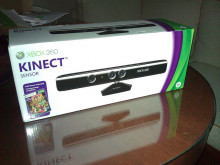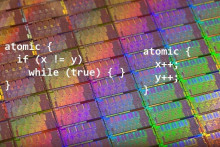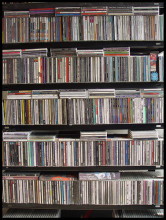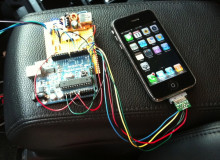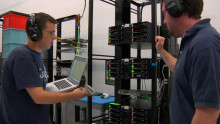National Australia Bank glitch leaves customers cashless
Thousands of National Australia Bank customers were prevented from withdrawing money when a computer glitch crippled its network.
Customers were unable to use ATM, EFTPOS, internet and phone banking services on Friday from about noon, the bank said in a statement.
NAB said the bank began rectifying the problem from 1pm. "For any customers whose transactions failed during the system outage period, they will have their accounts brought up to date overnight," the bank said in a statement.















































